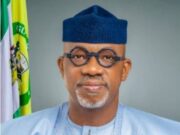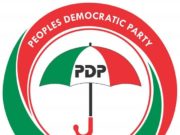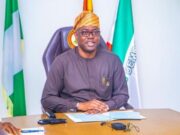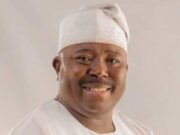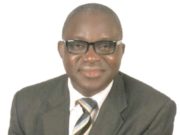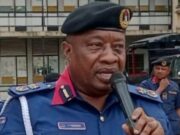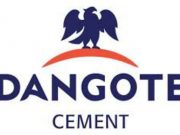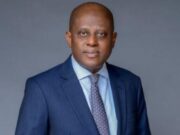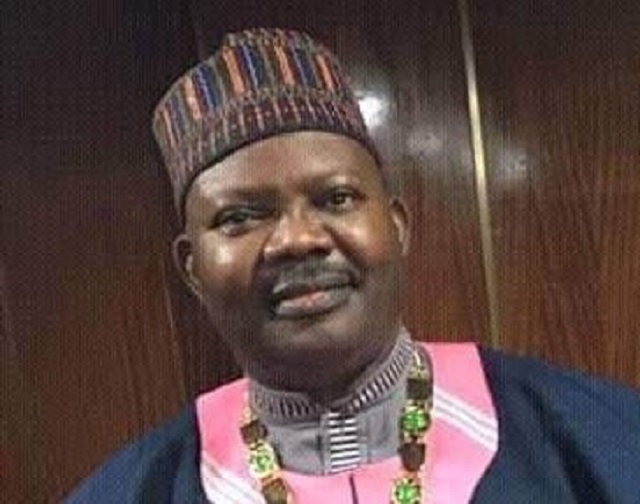Our man, Emmanuel Adeniran, recently had an encounter with the General Manager, National Theatre, Iganmu, Lagos State, Professor Sunny Ododo. He spoke on how Nigerian Government can promote peace via culture and tourism among many salient issues: Excerpts below:
Can we formally meet you?
My name is Professor Sunday Enessi Ododo, the General Manager/CEO of National Theatre, Iganmu, Lagos. I am a Professor of Performing Arts from the University of Maiduguri. I was also at the University of Ilorin for some period before I left. I was appointed as the General Manager/CEO of National Theatre on August 2020 but I assumed duty on September 1, 2020.
As the General Manager (GM) National Theatre, Iganmu, what mandate do you intend to achieve while in office?
I stand to run the mandate of the Agency on behalf of the Federal Government of Nigeria and I am directly responsible to the Honourable Minister of Information, Tourism and Culture, Alhaji Lai Mohammed. I have a mandate to project, preserve and present Nigerian cultural heritage and to run this place as a business entity and tourist attractions.
Beyond that, we are the creative home for Nigeria’s creative Industry such as the Performing Artists, the Visual Artists, Cultural Engineers, and Wooden Artists.
Since your assumption in office, can you share your experience working at the National Theatre?
Yes, it is an eye opener as there is so much to be done in this place, most especially to get Nigeria’s cultural space thriving and rewarding. The National Theatre has not been at its best since 1977 after the conclusion of the FESTAC festival. The Nigerian Government had made efforts to utilize the place for greater gains for Nigerians but along the line, much attention was not given to the edifice and it started to deteriorate. Even the government tried to concession the place but it failed.
Under the President Muhammadu Buhari-led government, an indigenous concept came up when the Bankers Committee through the Central Bank of Nigeria (CBN) in conjunction with the Federal Ministry of Information and Culture went into an agreement by signing a Memorandum of Understanding (MoU) to revamp the National Theatre with a huge sum of N21.8 billion. Being the first of its kind and by the time it is completed; it is going to generate employment for nothing less than 16,000 Nigerians.
Talents Hunt will also be organized to discover new talents among the youths, as that will be an avenue to discover them because they are also needed to revamp the Nigerian Theatre.
In addition, the Bankers Committees in conjunction with the Lagos State Government are going to come up with four creative hubs in fashion, music, film and ICT. These are the special areas where Nigerian youths in terms of talents will display their talents.
By the time the hubs are running, our youths will be more exposed and they will become employers of labour. Beyond that, the National Theatre environment should be very active, robust and it should make commercial activities be at its best.
Can you briefly remind our readers of the history of the National Theatre?
Yes, I will talk about it briefly. It came as a result of FESTAC 77, also known as the Second World Black and African Festival of Arts and Culture. Since that time, no major event such as that has ever been staged. The projects started under the Gowon’s Administration and Murtala and Obasanjo’s regime concluded it. It was a huge success and the Federal Government felt that the memory of the FESTAC should be kept alive and the edifice put to creative and cultural use.
Thereafter an Act was established by the Federal Government to create the National Theatre as an agency of the Government and the National Troupe, another arm within the National Theatre was created in 1991 to formally realize the operations of the National Theatre, Lagos State.
What other responsibilities did you engage in before your appointment to work here?
I was the President of the Society of Theatre Arts from 2013 to 2017. I was the Vice President, Association of Nigerian Authors (ANA). I have been Head of Departments at various times in the University and a member of the Senate. I have been part of so many cultural groups and committees of the Federal Government. Today, I am also privilege to be a member of the National Festival of Arts and Culture (NAFEST) Technical Committee.
Ekiti State is hosting NAFEST later this year, how prepared is the National Theatre ahead of the event?
Well, we are not the host. We are only part of the technical team and that is why we are here to lend our voice and make inputs into the planning of the National Festival. Incidentally, the Honourable Commissioner for Arts, Culture, and Tourism in Ekiti State, Professor Ojo Rasaki Bakare is a friend and a brother. We are both Artist and I want to let you know that last year in Jos, we bid to host the 2023 edition of NAFEST, we are here in Ado Ekiti to reconfirm that bid and we are waiting to see how it plays out.
How can we use Culture and Tourism to move Nigeria forward?
When I came to the National Theatre, we did not have any arm or outlet where ideas can be assembled. I decided to set up a centre called ideological theatre series, which before the end of this year 2021, a new edition will come out. We have secured an ISSN number for it. This is an avenue for all participants in the Arts and Cultural Sector to share new ideas and imbibe them. We are soliciting for contributions from eggheads and experienced data artists, creative artists, players in the industry to bring in their new ideas and pull them together and get them published annually. This is one idea that I think will help the sector.
Secondly, we are coming up with the National Theatre Academy. This Academy will bring professionals and scholars in the field together to share ideas and to brainstorm on how to make the arts and culture Industry thrive better and to promote great artistic work of Duro Ladipo, Herbert Ogunde, Lere Paimo and Jimoh Aliu from going into extinction.
We plan to bring their work into the academy in order to preserve and promote their memories and this will promote new creativity within the industry. Beyond that, the Academia will be training and re-training Artists so that they can give their best to the Industry in Nigeria and the world at large.
Another innovation we introduced is the talent hunt to discover young talented Artist, which will be preparatory to a bigger event because we believe there are many Whizkids, Davidos, Tufaces that are yet unknown. We will scout for them from wherever they are and showcase them to the society so that big labels can engage and sign them on.
What are the measures put in place to encourage young professionals?
Last year, we started the National Theatre festival of unity, which will now be held annually. The festival is a platform for youths and established artists to come and perform across culture and to synergize Nigeria’s cultural heritage. Nigeria as a nation is a multi-cultural expression. We are bringing unity in diversity. The Yoruba culture has something that the entire country can gain from and the same is applicable to the Hausa, Ibo, Ebira, Nupe, Ibibio culture. Nigerians can learn from one another and no culture is useless because it is the product of the evolution of the people and their way of life.
We will look at what is good in every culture and bring them together to the centre and appropriate them as our culture. That way, we will begin to talk about Nigeria’s culture in a true sense of it. Pulling all these together from the over 250 cultures in Nigeria will make the country to be great.
What is your message to the Nigerian Government?
Yes, I want to advise the Nigerian Government especially the states government to pay more attention to culture. We have social dislocation today because we have not been paying enough or deserved attention to issues relating to our cultures.
It is affecting our morals, ethos, social cohesion etc. What you gain by spending one million on culture, you cannot gain by spending N100 million on crude oil. Through culture, the people get to know their bearing and they get to become familiar with their moral values and social systems and off course, they will respect and identify their responsibilities to the government and to the family.
Nigerian Government should pay greater attention to culture and to culture only. They should think culture, act culture and live culture and through that, our national life and economic values would be greatly imparted. Every Government that is consistent should diversify the economy to culture and tourism.
Are you saying that lack of culture in Nigeria is responsible for the level of moral decadence we have in our society today?
We know that there is lack of culture but lack of serious attention to the cultural values and heritage are responsible for the decadence in our society today. The culture is there but do we relate and exhibit these cultures.
In Yoruba culture for instance, we must prostrate to great the elders. How many of such do we see today? Even our Children no longer do that again, they engage elders rudely and this is because the traditional system recognizes hierarchy and that is why there is social order. If an elder offends you, you will go and report; you should not engage and begin to exchange fisticuffs. All these are because of the erosion and dislocation of our cultural and moral values. Paying more attention to these cultures should start right from the primary school. Social studies as a subject, how much of it are they teaching in our schools today? And at a point, History was also removed from the Nigerian curriculum.
Do you think that was with good intentions?
Whatever was the intention, I wouldn’t know. But certainly, it is not viable and it is not good for our society because for us to move into the future, you must know your past and the past is a reflection of the present.
The past with the present gives that stimulus and energy to march into the future. Therefore, we need History because people who do not know their History will not know the next thing to do to better their future. History is knowing your past and knowing what is wrong with the past so that you can correct it in the present.
In addition, looking into the future is better than what you are doing today. If you do not know your past, then, what are you going to correct? You may end up repeating the errors of the past if you do not your History.
Our political space is chaotic today because we know little or nothing about our political history. In 2021, should we still be having political riots in the country? What happened in the 1960s? Have we learnt from it? Culture is the bedrock to a progressive social system and economic development.















